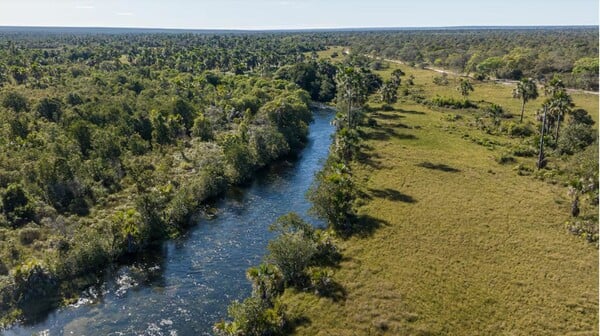Fast fashion companies such as H&M and Zara are responsible for deforestation in the Amazon and a range of other environmental crimes in the region, according to a report by the NGO Earthsight. The largest cotton producers in the Amazon region, connected to the supply chains of H&M and Zara, are accused of large-scale deforestation, land grabbing, and violent harassment of local communities in a sensitive ecological area in Brazil and around the world, as stated in Earthsight’s latest report. The NGO tracked the journey of products worth hundreds of millions of dollars sold by H&M and Zara, which are ultimately linked to manufacturers that source cotton directly from two agricultural industrial complexes associated with poor practices in Brazil’s vast Cerrado tropical savannah.
The findings of the Earthsight report raise new questions about the credibility of Better Cotton, the widely used Swiss certification system that is used by major brands to assure the public that their cotton is responsibly sourced. According to Earthsight, the major issue is what its findings reveal about broader shortcomings in the ability of large commercial brands to monitor and prevent environmental and human rights abuses in their supply chains. Fast fashion giants H&M and Zara used cotton from farms linked to mass deforestation, land grabbing, corruption, and violence in Brazil, as highlighted in Earthsight’s report. Based on satellite imagery, court decisions, shipping records, and undercover investigation, the report titled “Fashion Crimes” found that the companies sourced “dirty cotton” produced in the fragile Cerrado savannah from two of Brazil’s largest agribusiness companies, SLC Agricola and Omilos Horita.
In this instance, the Better Cotton scheme failed to prevent this cotton from reaching concerned consumers. This is a problem because fashion customers may rely on certification schemes to decide where they spend their money – hoping to buy sustainable, ethical products. The Cerrado, the most biodiverse savannah on Earth, is disappearing at alarming rates as Brazil’s vast agribusiness increasingly turns to the region. Earthsight identified at least 816,000 tons of cotton exported from 2014 to 2023 from farms managed by SLC and Horita, which “have a long history of legal injunctions against them, corruption convictions, and millions of dollars in fines related to land clearances.” This cotton is produced in the northeastern state of Bahia and shipped to eight Asian clothing manufacturers, including the Swedish H&M and the Spain-based Zara, according to the NGO’s report. Brazil, the world’s top exporter of beef and soy, has also emerged as a significant cotton producer in recent years and is now globally ranked second, behind only the United States. However, this contributes to the destruction of the environment in the Cerrado, where “a destructive mix of corruption, greed, violence, and impunity has led to blatant theft of public land and the denial of it to local communities,” as stated by Earthsight.
Better Cotton, in its statement, indicated that it had conducted an independent review into the “particularly concerning matters raised” by the report and that it would provide a summary of its findings. Inditex, the owner of Zara, criticized Better Cotton’s response to Earthsight’s report in a letter, protesting against the lack of transparency regarding how Better Cotton plans to address the NGO’s allegations. Better Cotton did not comment on the letter from Inditex. Inditex and H&M stated that they took Earthsight’s allegations seriously and urged Better Cotton to publicize the findings of its auditors.
The failure of Better Cotton to protect traditional communities in Bahia, coupled with major fashion brands relying on it as a substitute for their own due diligence, highlights why we need ethical supply chain laws. The European Council must pass the Corporate Sustainability and Due Diligence Directive in the final round of votes. The Brazil Cotton Growers Association (ABRAPA) stated that it had worked with the mentioned farmers to provide files and evidence to refute the claims of the report. “Unfortunately, these were largely ignored,” it said in a statement. “ABRAPA unequivocally condemns any practices that undermine environmental preservation, violate human rights, or harm local communities.”
Information sourced from The Business of Fashion.
